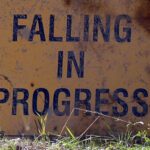Home »

Frazier is onto something here
Book Review
By Derryll White
Frazier, Charles (2006). Thirteen Moons.
My incredibly erudite and staggeringly well-read fellow worker Trevor gave me this novel, and suggested I read it. “I think you’ll like it,” he said.
Well, five pages – in he’s certainly right. Choosing love over all possible choices, I think that’s the way for a man to really live. As I get older I realize what an intoxicant memory is. All the loves of my past parade before me, conquering the desires, the lusts, the yearnings. I believe Frazier is onto something here.
 Frazier speaks of some illnesses as “a long way to die.” His main character, Will Cooper, is old in the beginning of the novel. He has seen much, and most readers will have experienced some of it also. A long way to die is a fearsome thing, something that forges iron in the gentlest souls, or destroys all. It is a place almost all of us visit, one way or another and again, choosing love gets us through.
Frazier speaks of some illnesses as “a long way to die.” His main character, Will Cooper, is old in the beginning of the novel. He has seen much, and most readers will have experienced some of it also. A long way to die is a fearsome thing, something that forges iron in the gentlest souls, or destroys all. It is a place almost all of us visit, one way or another and again, choosing love gets us through.
Frazier is very good at breaking large axioms down to their simplest form. An example: “The law is an axe. It cuts whatever it falls on. The man that wins knows how to aim the sharp edge away from himself.” Very clear, yet profound in today’s litigious society. Then he questions whether writing is an illness or a sin. He equivocates on this bit I say neither as for me writing is the continuous act of getting well.
The author is addicted to intuition. It is a wonderful trait in a writer. He sees a landscape of possibilities not of limits. He is the same with people, leaving his characters open to flux, growth, self-realization.
The author is a storyteller, and as such he recognizes the efficacy of good stories. He equally recognizes Mallory and the knights of the round table, Cherokee founding myths and heraldic tales of Scotland. He gives all equal weight and validity and thereby acts to legitimize his own story.
There is a sense of reasoned reflection in this novel that bridges time and space. Events unfold on the eastern frontier as America pushes west, but these same events cause the reader to reflect on current events, on the impacts former actions have on the state of the current American nation. The frontier and the concept of the Noble Savage give the reader pause in a world gone a little mad with power and greed, while at the same time forcing the reader to ask if these concepts ever truly existed. Malignant change and brutal loss ring true as constants, in the story and in life. Frazier recognizes that we live in a broken world.
“Be as you are and then go on your way to the Nightland is my belief.” So Will Cooper, a man of many, many years lived. I believe it is a way that any of us gain from, honest in the moment one after another.
Being an historian myself I truly appreciate the clarity of Frazier’s treatment of an historic dueling event. He gives three versions, supports and denies each in various ways, and then says, “After all, the exact nature of the incident is now unknowable. Everyone is dead but me… Something happened. Beyond that, nothing is knowable.” I love it!
The current commentary, couched in history and reflection, is nevertheless acerbic at its gentlest and cutting at its best. Western society can never be satisfied as it is its nature to want more, always more. Frazier claims that First Nations people cannot turn white, for then they cannot recognize themselves or their homeland.
Perhaps more than anything Charles Frazier forms a resounding, crushing intellectual understanding of our casual inhumanity, our ability as a people to go about the hurtful business of destroying others’ lives while at the same time deluding ourselves with the useless sop that we “are just doing our job.” He crafts this understanding ever more harshly by a delicate construction of the understanding that we constantly make choices that forevermore shape our lives and stay with us until we die.
This is a deeply reflective work about story, about narrative. It looks at how history comes to us, in the present, receptors of past deeds and dead lives. It studies how the deeds of men are perceived by others with little understanding of driving forces but huge capacities for litigation. Frazier reminds us, so eloquently, that it is all story – manipulated by many and sorted, analyzed and sourced by few. I echo Trevor – I think you’ll like this book.”
FUTURE – “Bear believed that if we make the world around us a better place to live, our inner selves can’t help but come along for the ride and we’ll get better too.”
PLACE – “When he was done, he had laid out a place to make a stand, a homeland in the image of the world of his youth, where we all, in our heads, most truly reside.”
DEATH – “When the bitter crack of shots reached me, not appreciably louder than eight dry sticks breaking, it seemed allied with the brevity of life, with time, the sound we make as we fall through its abyss into darkness.”
LOVE – “She went about with a haunted empty feeling that bruised the day blue.”
GRIEF – “Grief is not a thing that can be convincingly shared with an audience. Our worst pain is confined within our own skin.”
LIFE – “It’s a bad idea to live too long. Few carry it off well.”
CHANGE – “All I can say is that we are mistaken to gouge such a deep rift in history that the things old men and old women know have become so useless as to be not worth passing on to grandchildren.”
MEMORY – “Perhaps my memories are accurate, and perhaps they are purely an act of creation…. Wander off the stage of history and leave only a moving target. A mystery.”
TIME – “You find yourself exiled in a transformed world peopled by strangers. Lost in places you’ve known as intimately as the back of your hand.”
 – Derryll White once wrote books but now chooses to read and write about them. When not reading he writes history for the web at www.basininstitute.org.
– Derryll White once wrote books but now chooses to read and write about them. When not reading he writes history for the web at www.basininstitute.org.







